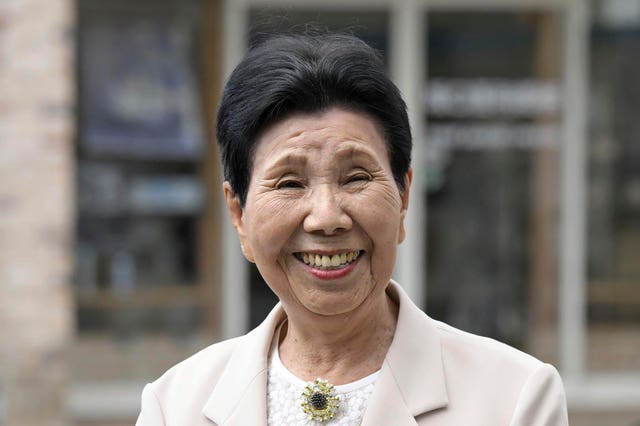
A Japanese court has found an 88-year-old former boxer not guilty of a 1966 quadruple murder, reversing an earlier wrongful conviction after decades on death row.
Iwao Hakamada’s acquittal by the Shizuoka District Court makes him the fifth death-row convict to be found not guilty in a retrial in post-war Japanese criminal justice.
The case could rekindle a debate on abolishing the death penalty in Japan.
The court’s presiding judge, Koshi Kunii, said the court acknowledged multiple fabrications of evidence and that Hakamada was not the murderer, NHK said.
Hakamada was convicted of the murder in 1966 of a company manager and three of his family members, and setting a fire to their home in central Japan.
He was sentenced to death in 1968, but was not because of lengthy appeals and the retrial process.

He spent 48 years behind bars, most of them on death row, making him the world’s longest-serving death row inmate.
It took 27 years for the top court to deny his first appeal for retrial. His second appeal for a retrial was filed in 2008 by his sister, Hideko Hakamada, now 91, and the court finally ruled in his favour in 2023, paving the way for the latest retrial, which began in October.
Hakamada was released from prison in 2014 when a court ordered a retrial after new evidence suggested his conviction may have been based on fabricated accusations by investigators, but was not acquitted.
After his release, Hakamada served his sentence at home because his frail health and age made him a low risk for escape.
At a final hearing at the Shizuoka court in May before Thursday’s decision, prosecutors again demanded the death penalty, triggering criticism from rights groups that prosecutors were trying to prolong the trial.
The extremely high hurdles for retrials have also prompted legal experts to call for the system to be revised.
During the investigation that followed his arrest, Hakamada initially denied the accusations, then confessed. He later said he was forced to confess under violent interrogation by police.
A major point of contention was blood-stained clothing that investigators claimed Hakamada wore during the crime and hid in a tank of fermented soybean paste, or miso. The clothes were found more than a year after his arrest.
A Tokyo High Court ruling in 2023 acknowledged scientific experiments that clothing soaked in miso for more than a year turns too dark for bloodstains to be spotted, noting a possible fabrication by investigators.
Defence lawyers and earlier retrial decisions said the blood samples did not match Hakamada’s DNA, and trousers that prosecutors submitted as evidence were too small for Hakamada and did not fit when he tried them on.
Japan and the United States are the only two countries in the Group of Seven advanced nations that retain capital punishment. A survey by the Japanese government showed an overwhelming majority of the public support executions.
Executions are carried out in secrecy in Japan and prisoners are not informed of their fate until the morning they are hanged. In 2007, Japan began disclosing the names of those executed and some details of their crimes, but disclosures are still limited.
Supporters say Hakamada’s nearly half-century detention has taken a toll on his mental health. Most of his time behind bars was spent in solitary confinement, in fear of execution. He spent a total of 48 years in prison, more than 45 of them on death row.
His sister, Hideko Hakamada, has devoted about half of her life fighting to prove his innocence. Before Thursday’s ruling, she said she was in a never-ending battle.
“It is so difficult to get a retrial started,” She told reporters in Tokyo. “Not just Iwao, but I’m sure there are other people who have been wrongly accused and crying.
“I want the criminal law revised so that retrials are more easily available.”


Comments: Our rules
We want our comments to be a lively and valuable part of our community - a place where readers can debate and engage with the most important local issues. The ability to comment on our stories is a privilege, not a right, however, and that privilege may be withdrawn if it is abused or misused.
Please report any comments that break our rules.
Read the rules hereLast Updated:
Report this comment Cancel